
Get Price Quote
Liquid Sodium Silicate, Sodium Bentonite Powder, Silica Ramming Mass

Get Price Quote
HSCAS, Zeolite, zeolite poultry, Zeolite Powder, Bentonite, Kaolin Clay
Best Deals from Sodium Silicates

Sodium Silicate Powder
Get Price Quote
500 Kilogram (MOQ)
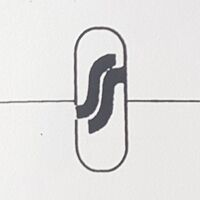
Sodium Silicate Powder
Get Price Quote
Liquid Sodium Silicate, Alkaline Sodium Silicate

Sodium Napthalene Sulfonated Formaldehyde Silicate CI - SNS 2812
Get Price Quote
1 Barrel (MOQ)

Sodium Napthalene Sulfonated Formaldehyde Silicate CI - SNS 2812
Get Price Quote
White Sodium Metasilicate 9h20, Selenium Sulfide Powder
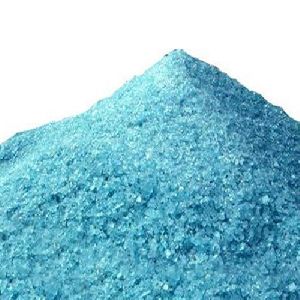
Sodium Silicate
20 Per Kilogram
We are engaged in offering wide range of Sodium Silicate salt that is widely demanded in several industries such as automobiles, textiles & many more..

Sodium Silicate
Get Price Quote
Sodium Meta Silicate, TriPotassium Citrate Monohydrate

Sodium Silicate Powder
15 Per Kilogram
500 Kilogram (MOQ)

Sodium Silicate Powder
6 Per Kilogram

Sodium Silicate Powder
Get Price Quote
Liquid Sodium Silicate, Sodium Silicate
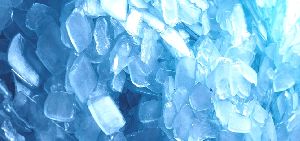
Sodium Silicate
Get Price Quote
1 Metric Ton (MOQ)
From catering to seasonal demand to a continuous one, we can do it, as we have an ultramodern storage facility, which is equipped with the latest inventory control and management system. We are strategically based in Thane(India) and are in proximity with the resources required for easy production process.

Sodium Silicate
Get Price Quote
The Sodium Silicate, which we offer, is processed properly so as to ensure that it remains stable even under extreme conditions. We make sure to properly handle the Sodium Silicate for this purpose we safely pack it, using chemical-grade packing material.

Sodium Meta Silicate Powder
39 - 45 Per Kilogram
1000 Kilogram (MOQ)

Sodium Silicate Powder
50 Per Bag
100 Kilogram (MOQ)

Sodium Silicate Powder
Get Price Quote
Liquid Sodium Silicate, Microfine Dolomite Lumps, Fire Clay Powder

Sodium Silicate Powder
Get Price Quote
Liquid Sodium Silicate, Sodium Saccharin, Formaldehyde Liquid

Sodium Silicate Powder
Get Price Quote
Liquid Sodium Silicate, Animal feed, Almonds, Sesame Seeds

Sodium Silicate Powder
Get Price Quote
Liquid Neutral Sodium Silicate, Alkaline Sodium Silicate Glass
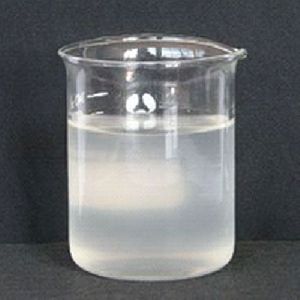
Sodium Silicate
Get Price Quote
Features: Water glass is a useful binder of solids, such as vermiculite and perlite. When blended with the aforementioned lightweight aggregates, water glass can be used to make hard, high-temperature insulation boards used for refractories, passive fire protection and high temperature insulations, such as moulded pipe insulation applications. When mixed with finely divided mineral powders, such as vermiculite dust (which is common scrap from the exfoliation process), one can produce high temperature adhesives. The intumescence disappears in the presence of finely divided mineral dust, whereby the waterglass becomes a mere matrix. Waterglass is inexpensive and abundantly available, which makes its use popular in many refractory applications.

Sodium Silicate
Get Price Quote
Liquid Alkaline Sodium Silicate, Active Pharmaceutical Ingredients
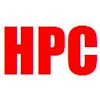
Sodium Silicate
Get Price Quote
Liquid Sodium Silicate, Stearic Acid, Calcium Chloride Powder

Sodium Silicate Powder
Get Price Quote
100 Kilogram (MOQ)
We are a renowned Manufacturer and Supplier of high quality Sodium Silicate Powder, which is highly glassy, colorless and soluble in water. This Sodium Silicate Powder is formed with a combination of alkali metal oxide, silica and water. Sodium Silicate Powder finds application in various chemical industries due to its qualitative features. Attributes : Easy dissolvable Act as anti-oil agent filling agent Act as high temperature filling agent High strength Optimum quality Applications : Soap industry Detergent industry Refractory Chemical industry Light industry
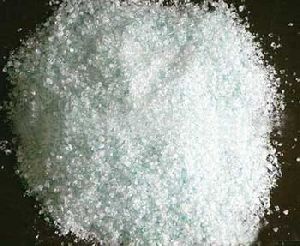
Sodium Silicate
Get Price Quote
Clients can avail from us excellent quality Sodium Silicate that is processed under the guidance of skilled & experienced professionals using high tech methodologies. This silicate is known for high effectiveness, stability, precise compositions, purity, accurate pH value and longer shelf life. Offered Sodium Silicate is widely applicable in cements, refractories, textile, automobiles, lumber processing, and passive fire protection. The offered chemical is also utilized for the clarification of wine & beer by precipitating colloidal particles. Applications Of Sodium Silicate: 1.Cements2.Refractories3.Textile4.Automobiles5.Lumber processing6.Passive fire protection7.In Clarification of wine & beer by precipitating colloidal particles Properties: 1.High effectiveness2.Stability3.Precise compositions4.Purity5.Accurate pH value6.Longer shelf life

Sodium Silicate
Get Price Quote
Sodium Meta Silicate, Sodium Hexa Meta Phosphate, Sodium Meta Bi Sulphite

Sodium Silicate
Get Price Quote
With the assistance of our trained professionals, we engage in providing Sodium Silicate. We are a Manufacturer, Supplier and Exporter, renowned for our flawless performance. Our product is reliable and durable. The quality is ensured to meet the required parameters and standards of quality set by the industry. The precise composition and immaculate quality set our product apart. Get in touch to acquire it at cheaper rates. Details : Formed by dissolving silica or silicate minerals in NaOH solutions. The silicate anion, SiO4-4, is found in solutions of sodium silicate. Silicate anions form polysilicates, or colloidal silica gel. A silicate mud is a type of shale-inhibitive water base drilling fluid that contains sodium silicate or potassium silicate polymeric ions. These ions adsorb on the shale surface and form a semipermeable osmotic membrane that prevents the transport of water and ions internal to the shale structure. This physicochemical barrier helps improve wellbore stability and provides in-gauge holes through troublesome shale sections that otherwise might require a nonaqueous drilling fluid.

Sodium Silicate
Get Price Quote
Sodium Meta Silicate, Light Soda Ash Powder, Dense Soda Ash Powder

Sodium Silicate
Get Price Quote

Sodium Silicates
14 - 16 Per Kg
5000 Kilogram (MOQ)
Shivalik Chemicals is a manufacturer and supplier of Sodium Silicate products, primarily Sodium Silicate Glass and Sodium Silicate Liquid. We deal in both alkaline and neutral solutions of sodium silicate products. With our state-of-art technology and equipments, we assure you best quality products at all times. These products find extensive usage in the below industries *Soap and Detergent Industry *Plywood Industry *Iron foundries *Ceramic Industry *Cardboard Industry *Pulp and Paper Mills *Textile Industry *Paint Industry *Pigment and Adhesive factories *Wastewater Treatment Plants *Fire Protection *Cement Industries and many more.. Our multi-product, large scale commercial operation has a capacity of 25 Tons per day at our manufacturing plant in Kaithal. With our facility of doorstep delivery of products in our own tankers, we assure you timely and effective delivery solution. For more details on products and placing orders, reach us out on the below contact details Name: Ayush Garg Contact Number: 9729740097 Looking forward to doing great business with your organisation!

Sodium Silicate
Get Price Quote
Basic Information Sodium silicate is the common name for compounds with the formula Na2(SiO2)nO. A well-known member of this series is sodium metasilicate, Na2SiO3. Also known as waterglass or liquid glass, these materials are available in aqueous solution and in solid form. The pure compositions are colourless or white, but commercial samples are often greenish or blue owing to the presence of iron-containing impurities.They are used in cements, passive fire protection, textile and lumber processing, refractories, and automobiles. Sodium carbonateand silicon dioxide react when molten to form sodium silicate and carbon dioxide: Na2CO3 + SiO2 → Na2SiO3 + CO2 Sodium silicate is one of several chemicals that are composed of sodium, silica, and oxygen. The term is often used to indicate sodium metasilicate, which is also known as liquid glass. Sodium silicate melts at a very high temperature, making it useful for commercial fire-proofing. A sodium silicate compound contains sodium oxide, Na2O, and silica, Si2O, or a mixture of these compounds. They can be associated with up to nine molecules of water, or lack water and be known as anhydrous. These compounds can be solid, or they can be liquids. The solid version is widely used to make silica gel — a common drying agent.The combination of being liquid and being resistant to high heat makes these compounds useful for automobile repair. A sodium silicate solution is circulated from the radiator to seal leaks in the head gasket. This solution can also be used instead of motor oil to permanently disable a car engine prior to the auto’s destruction. The liquid version is also useful to treat concrete to make it more water repellent. Sodium silicate water solutions bind solids well, forming insulation boards that tolerate high temperatures. This property enables them to be used to as a refractory—retaining strength at high temperatures. Due to this, they can be used as linings in kilns and glass-making equipment. If water-proofed, they can be used as passive fire protection, such as being incorporated into the structure for plastic pipes, to form firestop devices. Sodium meta silicate is a strong base that is used in a variety of detergents as a substitute for phosphates, which have been responsible for a great deal of water pollution, by causing algae blooms. It acts primarily by changing the pH of the water to inactivate water hardness. Technically, it is known as a builder. Another sodium silicate compound is sodium aluminum silicate, which is also known as sodium aluminium silicate. It is composed of sodium, silica, oxygen, and aluminum. It can also be found in an anhydrous form, or combined with water. Sodium aluminum silicate can form very attractive minerals, including jadeite, which comprises one form of the gemstone jade. Another mineral is albite. These minerals are anhydrous. There is a synthetic, industrial form of sodium aluminum silicate that contains water. It is known as synthetic amorphous sodium aluminosilicate. This is a common food additive, used as an anti-caking agent that keeps powdered foods free of lumps. USES of Sodium Silicate: Adhesive The largest application of sodium silicate solutions is a cement for producing cardboard. When used as a paper cement, the tendency is for the sodium silicate joint eventually to crack within a few years, at which point it no longer holds the paper surfaces cemented together. Drilling fluids Sodium silicate is frequently used in drilling fluids to stabilize borehole wells and to avoid the collapse of bore walls. It is particularly useful when drill holes pass through argillaceous formations containing swelling clay minerals such as smectite or montmorillonite. Detergent auxiliaries It is used in detergent auxiliaries such as complex sodium disilicate and modified sodium disilicate. The detergent granules gain their ruggedness from a coating of silicates. Water treatment Water glass is used as coagulant/deflocculant agent in wastewater treatment plants. Waterglass binds to colloidal molecules, creating larger aggregates that sink to the bottom of the water column. The microscopic negatively charged particles suspended in water interact with sodium silicate. Their electrical double layer collapses due to the increase ofionic strength caused by the addition of sodium silicate (doubly negatively charged anion accompanied by two sodium cations) and they subsequently aggregate. This process is called coagulation/deflocculation. Refractory use Water glass is a useful binder of solids, such as vermiculite and perlite. When blended with the aforementioned lightweight aggregates, water glass can be used to make hard, high-temperature insulation boards used for refractories, passive fire protection and high temperature insulations, such as moulded pipe insulation applications. When mixed with finely divided mineral powders, such as vermiculite dust (which is common scrap from the exfoliation process), one can produce high temperature adhesives. The intumescence disappears in the presence of finely divided mineral dust, whereby the waterglass becomes a mere matrix. Waterglass is inexpensive and abundantly available, which makes its use popular in many refractory applications. Dye auxiliary Sodium silicate solution is used as a fixative for hand dyeing with reactive dyes that require a high pH to react with the textile fiber. After the dye is applied to a cellulose-based fabric, such as cotton or rayon, or onto silk, it is allowed to dry, after which the sodium silicate is painted on to the dyed fabric, covered with plastic to retain moisture, and left to react for an hour at room temperature. Food preservation World War I poster suggesting the use of waterglass to preserve eggs (lower right).Sodium silicate was also used as an egg preservation agent through the early 20th century with large success. When fresh eggs are immersed in it, bacteria which cause the eggs to spoil are kept out and water is kept in. Eggs can be kept fresh using this method for up to five months. When boiling eggs preserved this way, it is well advised to pin-prick the egg to allow steam to escape because the shell is no longer porous. Metal Repair Sodium silicate is used, along with magnesium silicate, in muffler repair and fitting paste. When dissolved in water, both sodium silicate and magnesium silicate form a thick paste that is easy to apply. When the exhaust system of an internal combustion engine heats up to itsoperating temperature, the heat drives out all of the excess water from the paste. The silicate compounds that are left over have glass-like properties, making a temporary, brittle repair. Safe construction A mixture of sodium silicate and sawdust has been used in between the double skin of certain safes. This not only makes them more fire resistant, but also makes cutting them open with an oxyacetylene torch extremely difficult due to the smoke emitted. Crystal gardens When crystals of a number of metallic salts are dropped into a solution of water glass, simple or branching stalagmites of coloured metal silicates are formed. This phenomenon has been used by manufacturers of toys and chemistry sets to provide instructive enjoyment to many generations of children from the early 20th century until the present. An early mention of crystals of metallic salts forming a “chemical garden” in sodium silicate is found in the 1946 Modern Mechanix magazine.[15][/15] Metal salts used included the sulfates and/or chlorides of copper, cobalt, iron, nickel, and manganese.